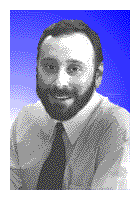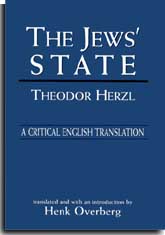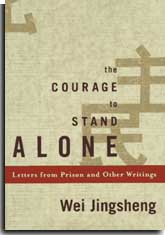
|

|

Jewish World Review June 5, 1998 / 11 Sivan, 5758
Jonathan S. Tobin
I'M NOT SURE OF THE ORIGIN of the notion that people read more during the
summer. Personally, I think it is a myth. Most people I know actually read
more during the winter when there are fewer fun outside activities.
Nevertheless, in deference to tradition, here is a list of 10 of the best
books I've come across in the last year. I heartily recommend all of them.
1. Drawing Life: Surviving the Unabomber by David Gelertner (Free Press,
1997,
159 pages): If there is any single book published in the last year that you
must read it is this slim volume of prose from David Gelertner. Gelertner,
the
Yale professor who was injured by one of the Unabomber's mail bombs, is one
of
the finest writers of our time. This book is more than a free-flowing
narrative of the attempt on his life and his painful recovery and return to
life. It is a statement about what it is to be a thoughtful human being in
an
age where our collective refusal to make moral judgments has done
irreparable
harm to society. Many will find his scathing and insightful conclusions
about
liberalism unsettling. This is an unforgettable, beautiful book.
3. Israel: A History by Martin Gilbert (Morrow, 1998, 750 pages): In this
year
of Israel's jubilee, it was inevitable that this most prolific of
contemporary
Jewish historians would weigh in with his own tome summarizing Israel's
first
50 years. Gilbert, the British Jew who made his reputation as the author of
the official biography of Winston Churchill, has become something of a
history
industry in recent years with an avalanche of general histories and map
books.
Written in his usual graceful and lively style aided by voluminous research,
Gilbert's Israel is a worthy addition to anyone's library.
4. The Kidnaping of Edgardo Mortara by David I. Kertzer (Alfred A. Knopf,
1997, 350 pages): The heartbreaking story of how a Jewish boy was kidnaped
from his family in the Italy of 1858 is more than just a tale of Jewish
suffering in Christian Europe. Kertzer unravels all the threads of politics
and intrigue to put the events of this shocking crime in perspective. It is
an
extraordinary example of narrative history at its best and will especially
ring true for those who were disappointed by the recent Church report on the
Vatican's role during the Holocaust.
5. The Jews' State by Theodor Herzl (Jason Aronson, 1997, 271 pages): The
book
that everyone has heard of but few but scholars read. In this new version
which is labeled "A Critical English Translation," Australian scholar Henk
Overberg has combined a readable version of this most influential of all
modern Jewish polemics with a useful introduction, glossary and
bibliography.
6. Whittaker Chambers by Sam Tanenhaus (Random House, 1997, 638 pages):
Misunderstood and castigated by the left during his lifetime, Chambers
testimony against Communist traitor Alger Hiss was one of the seminal events
of the Cold War. Vindicated by history, Chambers' reputation still suffers
from the calumnies heaped upon him by Hiss' defenders. But in Tanenhaus'
outstanding biography, readers gain more than an understanding of the Hiss
case. It is the story of one man's heartbreaking battle with one of the
great
evils of the century. Yet this book is worth reading just for its own
literary
merit. Jewish readers will also find the portrait of the New York Jewish
intellectual milieu which formed Chambers interesting. Simply one of the
best
American biographies in print.
7.A History of the American People by Paul Johnson (Harper Collins, 1997,
1,088 pages): It may not fit into your beachbag but the latest from the from
Johnson is still worth the effort. The author of one of the best single
volume
histories of the Jewish people ("A History of the Jews"), Johnson is cranky,
conservative, makes infuriating small mistakes and comes to some odd
conclusions. But he is also one of the most readable and most original
thinkers about modern history. His unabashed pro-Americanism is refreshing
as
is his extremely politically incorrect view of the world.
8.The Courage to Stand Alone by Wei Jingsheng (Viking, 1997, 286 pages):
This
compilation of letters from prison by one of the most courageous Chinese
pro-
9.
The Last Kabbalist of Lisbon by Richard Zimler (The Overlook Press, 1998,
318 pages): I generally detest mysteries but this spine-tingling yarn about
the search for a murderer amid the chaos of the 1507 anti-Marrano pogrom in
Lisbon, Portugal, held me riveted. Along with a great story, the reader is
rewarded with a fascinating portrait of the existence of the Portuguese Jews
who led perilous double lives as "New Christians." My favorite Jewish novel
of
the year.
10. Master and Commander by Patrick O'Brian (Norton, 1970, 412 pages):
Looking
for a great (non-Jewish) summer escape? This first of this classic series of
19 novels about the adventures of an English sailor and his doctor friend
during the Napoleonic Wars is the answer. More than just adventures, these
books are truly great literature with fascinating vignettes about
anthropology, medicine, music, politics, navigation, warfare and other
topics.
Warning: These novels are highly addictive. Read one and you'll have to read
the
 Ten books for a long, hot summer:
A serious vacation reading list for Jewish history lovers
Ten books for a long, hot summer:
A serious vacation reading list for Jewish history lovers
 2.Biblical Literacy by Rabbi Joseph Telushkin (Morrow, 1997, 628 pages):
The
third in his series, Telushkin's user-friendly Jewish reference books (the
first two were "Jewish Literacy" and "Jewish Wisdom"), "Biblical Literacy"
is
an excellent reintroduction to the basic text of Jewish life. Divided into
sections summarizing "People and Events" and "Laws and Ideas" as well as a
third which gives the 613 mitzvas of the Torah in order of appearance, this
book is a valuable primer of Biblical knowledge. It is also chock full of
helpful insights that will greatly enhance the understanding of even non-
beginners.
2.Biblical Literacy by Rabbi Joseph Telushkin (Morrow, 1997, 628 pages):
The
third in his series, Telushkin's user-friendly Jewish reference books (the
first two were "Jewish Literacy" and "Jewish Wisdom"), "Biblical Literacy"
is
an excellent reintroduction to the basic text of Jewish life. Divided into
sections summarizing "People and Events" and "Laws and Ideas" as well as a
third which gives the 613 mitzvas of the Torah in order of appearance, this
book is a valuable primer of Biblical knowledge. It is also chock full of
helpful insights that will greatly enhance the understanding of even non-
beginners.
 For those who want to know what all the fuss is about Zionism, a trip back
to
the ur-text would be an excellent idea.
For an added bonus, try yet another important book of little read Zionist
thought: "Every Individual A King: The Social and Political Thought of Ze'ev
Vladimir Jabotinsky" by Raphaella Bilski Ben Hur (B'nai Brith Books, 1993,
303
pages); Jabotinsky, the father of the Likud movement was much slandered by
his
left-wing opponents. But this quintessential liberal nationalist has far
more
influence on modern Israel than is generally thought. Read this and you'll
wish that Bibi and the rest of Jabotinsky's heirs would take his philosophy
of
individual rights more to heart.
For those who want to know what all the fuss is about Zionism, a trip back
to
the ur-text would be an excellent idea.
For an added bonus, try yet another important book of little read Zionist
thought: "Every Individual A King: The Social and Political Thought of Ze'ev
Vladimir Jabotinsky" by Raphaella Bilski Ben Hur (B'nai Brith Books, 1993,
303
pages); Jabotinsky, the father of the Likud movement was much slandered by
his
left-wing opponents. But this quintessential liberal nationalist has far
more
influence on modern Israel than is generally thought. Read this and you'll
wish that Bibi and the rest of Jabotinsky's heirs would take his philosophy
of
individual rights more to heart.
 democracy dissidents is a vivid reminder that the struggle for human rights
in
China is still alive. Recently released by Beijing as a reward to President
Clinton for the president's betrayal of the cause of human rights, this book
would make good airplane reading for Mr. Bill on his way to Tiananmen
Square.
democracy dissidents is a vivid reminder that the struggle for human rights
in
China is still alive. Recently released by Beijing as a reward to President
Clinton for the president's betrayal of the cause of human rights, this book
would make good airplane reading for Mr. Bill on his way to Tiananmen
Square.
JWR contributor Jonathan S. Tobin is executive editor of the Connecticut Jewish Ledger.